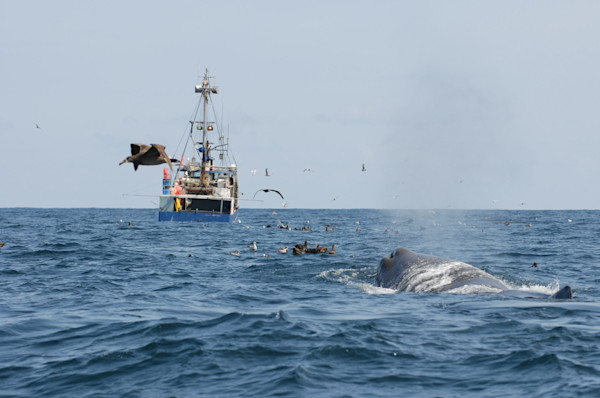
Depredation is the removal of fish caught on fishing lines
Depredation by toothed whales is a widespread problem in many oceans around the world. Negative impacts of depredation include economic losses to fishermen, increased pressure on fish stocks, and injury or mortality to whales.
Depredation by toothed whales like killer whales and sperm whales is a global problem causing economic losses for fishermen and impacting fish stocks, while also posing risks to the whales themselves. In British Columbia, depredation incidents are increasing among halibut, black cod, and salmon fishermen, primarily in hook and line fisheries. Other fishing methods can contribute by discarding offal and releasing bycatch in the presence of whales. The intelligence and social behavior of cetaceans make it challenging to eliminate learned depredation behaviors that can spread within populations. Prevention is crucial, requiring collaboration among fishermen, scientists, and managers to minimize the impact on fisheries.
Depredation results in significant economic losses, estimated at tens of thousands of dollars per day for some fishermen. While gear damage is minor, the loss of catch is a pressing concern. In BC, depredation incidents by killer and sperm whales are rising, particularly affecting commercial salmon trollers and sport fishers targeting chinook and coho salmon. Reporting incidents is vital to gather more information on the extent of the problem.
Both killer whales and sperm whales are protected species under the Species-at-Risk Act in BC. Efforts to address depredation include past symposiums and workshops, leading to the formal recording of events through Pacific Halibut Commission logbooks. This data aims to establish a baseline and track patterns. The key focus is to prevent depredation from becoming widespread.
Addressing depredation requires proactive measures, cooperation, and ongoing monitoring to mitigate its impact on fishermen and whale populations.